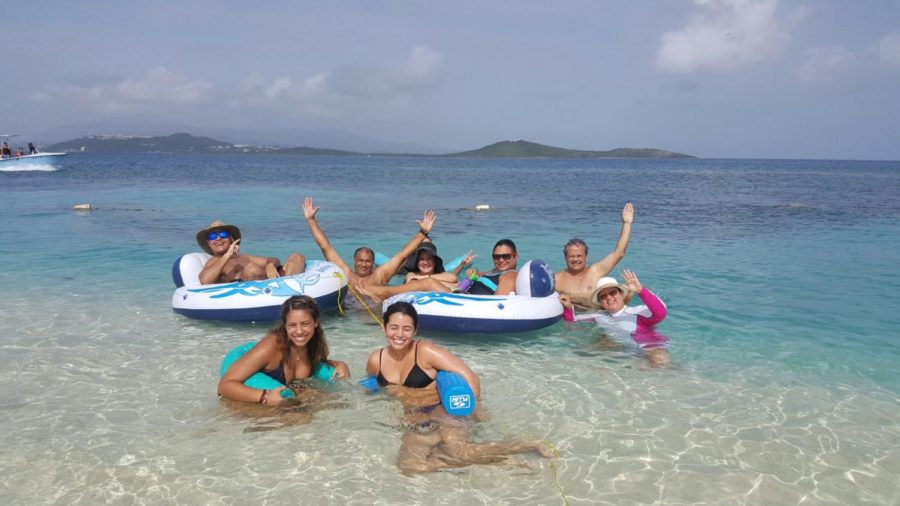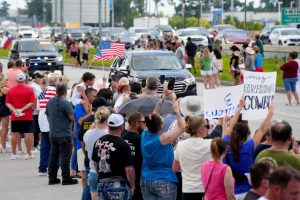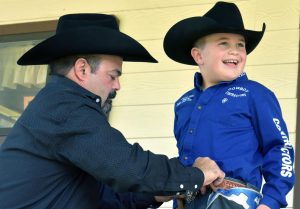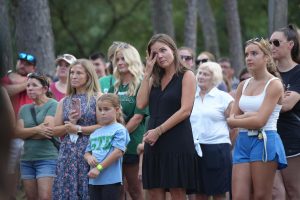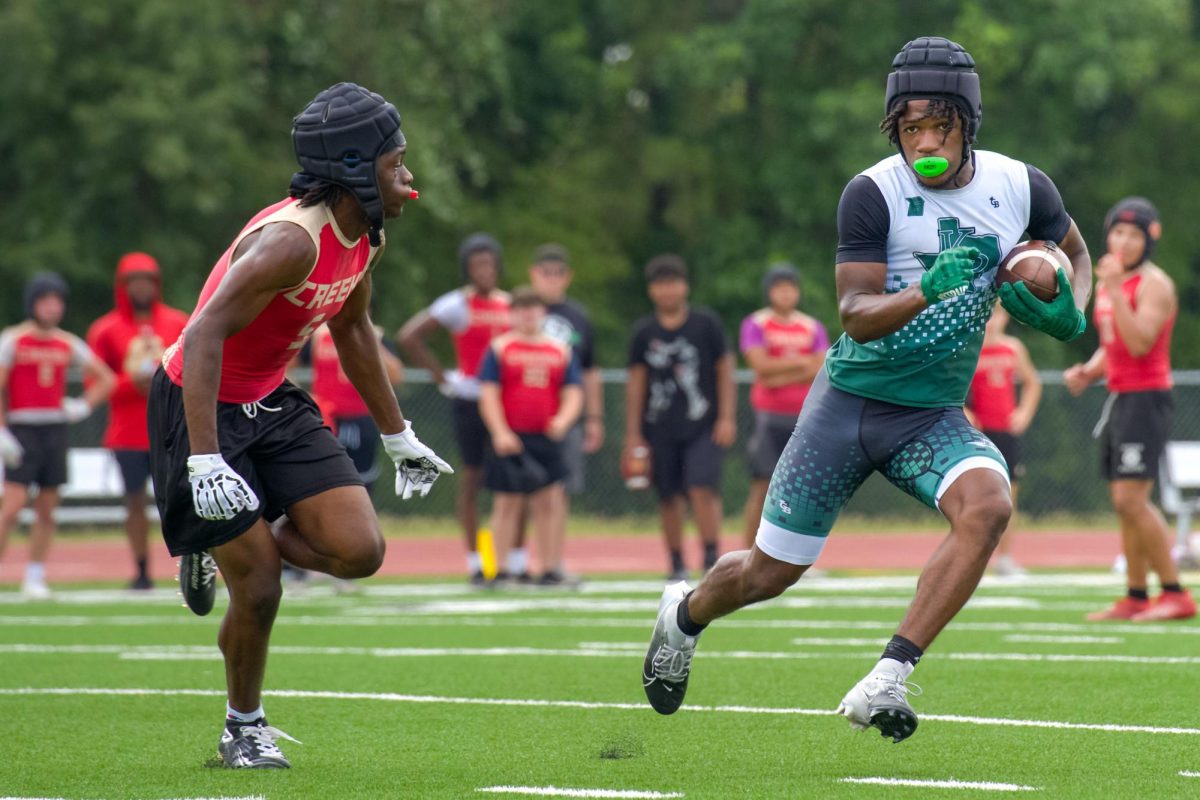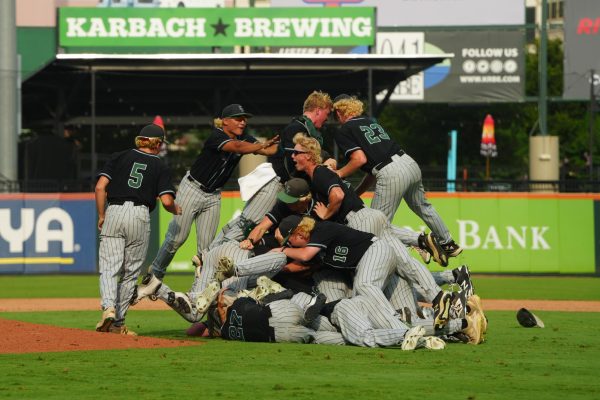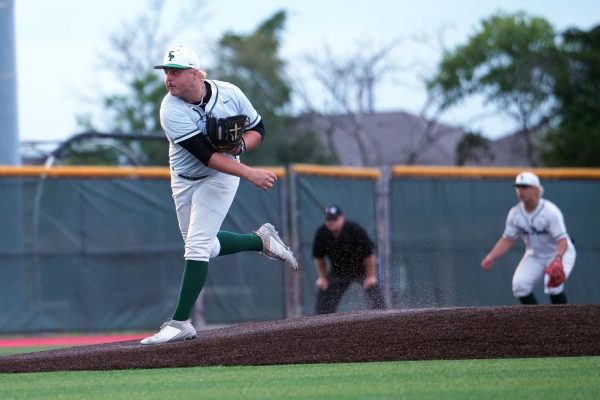Quiñones keeps Puerto Rico near heart
Surviving the devastation caused by Hurricane Maria was an experience Quiñones and her family will never forget.
Spanish teacher Eileen Quiñones spends time with her family at Cayo Icacos, a small, uninhabited island off the coast of Fajardo, Puerto Rico. She moved to the contiguous United States in 2018.
October 8, 2021
The phone was placed next to Daniela Conde’s pillow every night in hopes her mom — Spanish teacher Eileen Quiñones — would call.
It was September 2017, and Quiñones and her husband could not find affordable flights out of Puerto Rico as Hurricane Maria approached. When the Category 4 hurricane hit the island, Conde panicked in her college apartment. Days passed with no phone call from her parents.
“I wanted to cry every second of every day honestly, because not knowing if your parents are alive is a very stressful thing,” said Conde, who was at Loyola University in New Orleans.
Finally, she awoke one morning to her phone ringing. She almost rolled back over and stayed sleeping until the name on caller ID hit her.
“Oh my gosh, she is calling!” Conde thought as she grabbed the phone. “She’s finally calling!”
The tears started flowing as Conde heard her mother on the other line.
♦ ♦ ♦ ♦
It had taken seven days for Quiñones and her husband to find a phone signal to call their two daughters, who lived in the contiguous United States. While searching for a way to reach their kids, Quiñones surveyed the damage around her Puerto Rico home and adjusted to life without water and electricity.
“It was devastating, we lost everything,” Quiñones said. “It was catastrophic, food was scarce. We almost didn’t have anything.”
It took four months after Hurricane Maria before Quiñones and her husband had running water and electricity at home.
She learned how to take a bath with a gallon of water. She learned how to go to a food truck, cafeteria or bakery and simply ask, “What do you have available?”
“We are used to having so much,” Quiñones said. “But when you really need to survive, it’s a matter of what can I find?”
Quiñones said she never saw looting.
Instead, people waited. They waited in line for 27 hours just to get gas for their cars.
“You would be in line for seven hours to get money out of the bank,” Quiñones said.
Due to hospitals collapsing and no medical resources – in addition to landslides – Quiñones said the death toll was higher than the 3,057 deaths that were publicized.
“Complete houses and families disappeared in communities in the center of the island, and that was not disclosed,” Quiñones said. “The magnitude of the damage was not disclosed. The politicians are still now in 2021 playing games with the situation.”
♦ ♦ ♦ ♦
Quiñones and her husband moved to the contiguous United States a year after the Hurricane. Her daughters, Daneila Conde and Tanya Cabrera, had already moved to the States for college. After Maria, Quiñones and her husband found out neither of their daughters planned on returning to the devastated island.
While Quiñones decided to follow, she has never left behind thoughts of the island she loves.
She misses the Puerto Rican weather, beaches and food. She misses the dancing and warm personalities of Puerto Ricans.
Quiñones taught at a small, all-boys school for 28 years before leaving the island.
“I was already receiving the children of my first students,” Quiñones said. “It was less than 600 students, so it was a very close-knit community.”
Quiñones has only gotten to visit Puerto Rico twice since, but she keeps the culture alive with food and traditions. Quiñones cooks her own sofrito and keeps her Christmas tree up from Thanksgiving until Three Kings Day on Jan. 6.
♦ ♦ ♦ ♦
While Conde said she and her sister understood how challenging it was to leave Puerto Rico, they were excited to have them closer.
“I call [my sister], my mom and I the trio because those are definitely my two best friends in life,” Conde said.
Conde can now drive from New Orleans to Houston whenever she needs to see her mom. She no longer sleeps with the phone next to her pillow waiting for a call, but the phone call back in 2017 is seared in her memory.
She never even said hello. Through her sobs, she asked, “Are you OK? Are you and dad OK?”
Quiñones calmly responded, “This is so hard, and I’m so happy to hear your voice.”
Conde had braced for the worst. Then she heard the voice on the other line.
“That was one of the best moments of my life,” she said.


